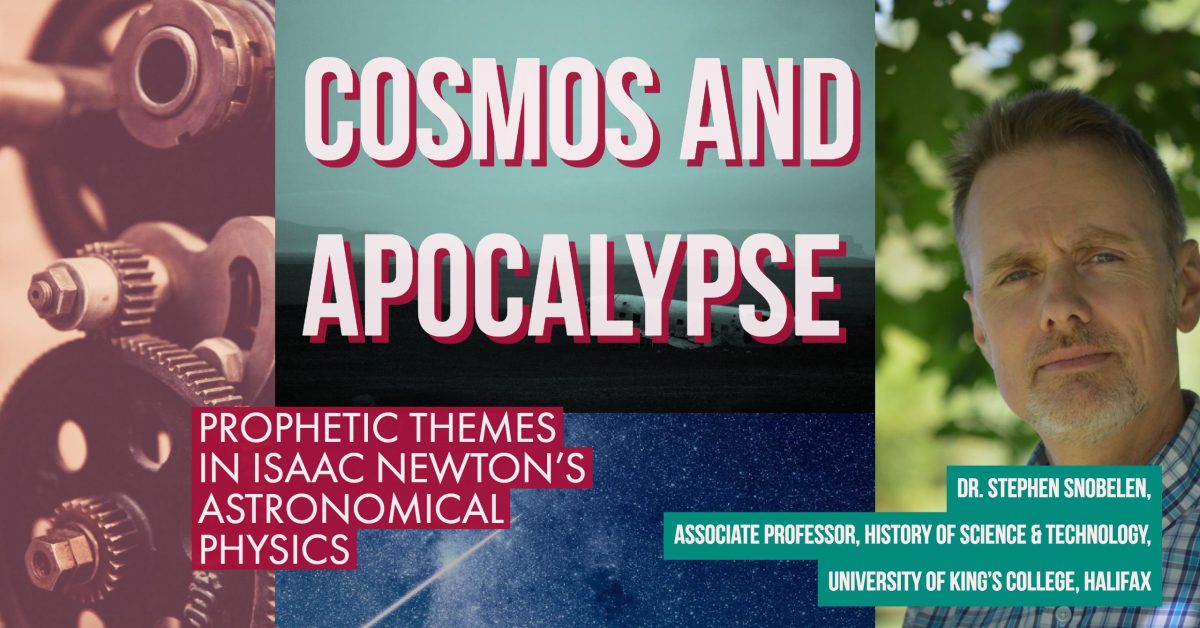FREE PUBLIC EVENT: The CSCA presents a lecture by Dr. Stephen Snobelen, Associate Professor of the History of Science and Technology Programme at University of King’s College, Halifax.
Find more events in Vancouver, BC
“Cosmos and Apocalypse: Prophetic Themes in Isaac Newton’s Astronomical Physics”
Popular conceptions notwithstanding, Isaac Newton believed in neither a static cosmos nor a clockwork universe. Newton’s cosmos was governed by ‘entropic’ forces that led to increasing irregularities and decline. These forces necessitated periodic reformations of the planetary and cometary systems through divine intervention, which set the universe back on course. Thus, in a certain sense Newton’s physics is not time-symmetric but conforms to an arrow of time. Hints of this thinking appear in the Principia and Opticks, but it is only in Newton’s private manuscripts and private conversations that the specifically apocalyptic nature of his cosmology becomes apparent. This lecture examines the parallels between ideas put forward in his prophetic manuscripts and his understanding of a cosmos that goes through successive periods of decline and renewal. A dominant theme in Newton’s prophetic writings is that of apostasy and reformation, that is, the tendency for religion to become debased and ineffective overtime, which in turn requires the intervention of God to restore religion to its ideal state through the work of prophets. In his cosmology, Newton likewise believed that the accumulation of irregularities in the planetary system could be corrected through such physical agencies as comets. These parallels reveal a profound association in Newton’s mind between the human and cosmic spheres and provide insight into the birth of modern physics.
Dr. Stephen Snobelen is Associate Professor of the History of Science and Technology Programme at the University of King’s College in Halifax. His research and teaching interests include history of science (early modern and nineteenth century), science and religion, science in popular culture, the popularization of science, radical theology in the early modern period, and millenarianism. His primary research efforts are currently devoted to interpreting Isaac Newton’s theological manuscripts and understanding the relationships between Newton’s science and his religion. He received his Ph.D. in the History and Philosophy of Science from the University of Cambridge.
Also, don’t miss Snobelen’s public evening lecture on the same day:
Find more events in Vancouver, BC
